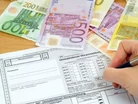Six VAT Issues Your Business Should be Aware of

Value Added Tax (VAT) has been a consumption levy introduced to the UK in 1973, and now represents the third largest source of revenue for the government.
For businesses, there are many rules and regulations that must be adhered to if they are to stay in the good books of Her Majesty’s Revenue and Customs (HMRC).
Sue Redmond has been a partner for over 20 years at chartered accountants Lloyd Piggott. Here she explained to Business Review Europe six common issues surrounding the multifaceted subject of VAT:
VAT registration limit
From 1st April 2014 the VAT registration threshold became £81,000. Meaning, if your taxable income has exceeded this limit in the last year (12 months), you must register for VAT. What many businesses may not consider however, is that you must re-examine this limit on a continuous 12 month basis
Changes
You could face a financial penalty if you don’t inform HMRC of particular changes within 30 days; the name, trading name, or main address of your business, your accountant or agent, the members of a partnership or the name and home address of any partners.
Reclaiming costs
If you bought goods or services before you registered for VAT, you may be able to recover the VAT you paid on them. You can generally reclaim VAT on goods you bought up to four years before you registered as long as they were for business purposes and you still hold them on the date of registration.
This is particularly useful if you had to spend substantial amounts on equipment before you could start to trade
VAT relief
You can also claim back VAT on some costs incurred after you have deregistered. You can claim relief for VAT on supplier invoices dated after your registration was cancelled, as long as these services relate to the period when you were VAT registered. Examples could include services provided by a solicitor or an accountant
Beware of the flat rate scheme
The flat-rate scheme can offer an uncomplicated and cost effective way of calculating your VAT, but businesses need to take certain elements into consideration before committing to it.
Under this scheme you apply the reduced flat-rate percentage to all business income, but what most people don’t appreciate is that this rate must also be applied to income that is exempt or zero-rated, and could leave you considerably out of pocket
International trade VAT
The red tape associated with trading abroad can be a concern for many businesses. Ensuring that you have the correct systems in place can allow you to take advantage of the prospects that international trade offers
If you sell, supply or transfer goods and services out of the UK to traders registered for VAT in other EC (European Commission) member states you will need to file an EC Sales List (ESL). The information you make available will be used by other EC member states to make sure the VAT has been properly accounted for
If you intend to export goods to countries outside the EU you will need to get an identification number to deal with EU custom authorities. This number is known as an Economic Operator Registration and Identification Number (EORI).



